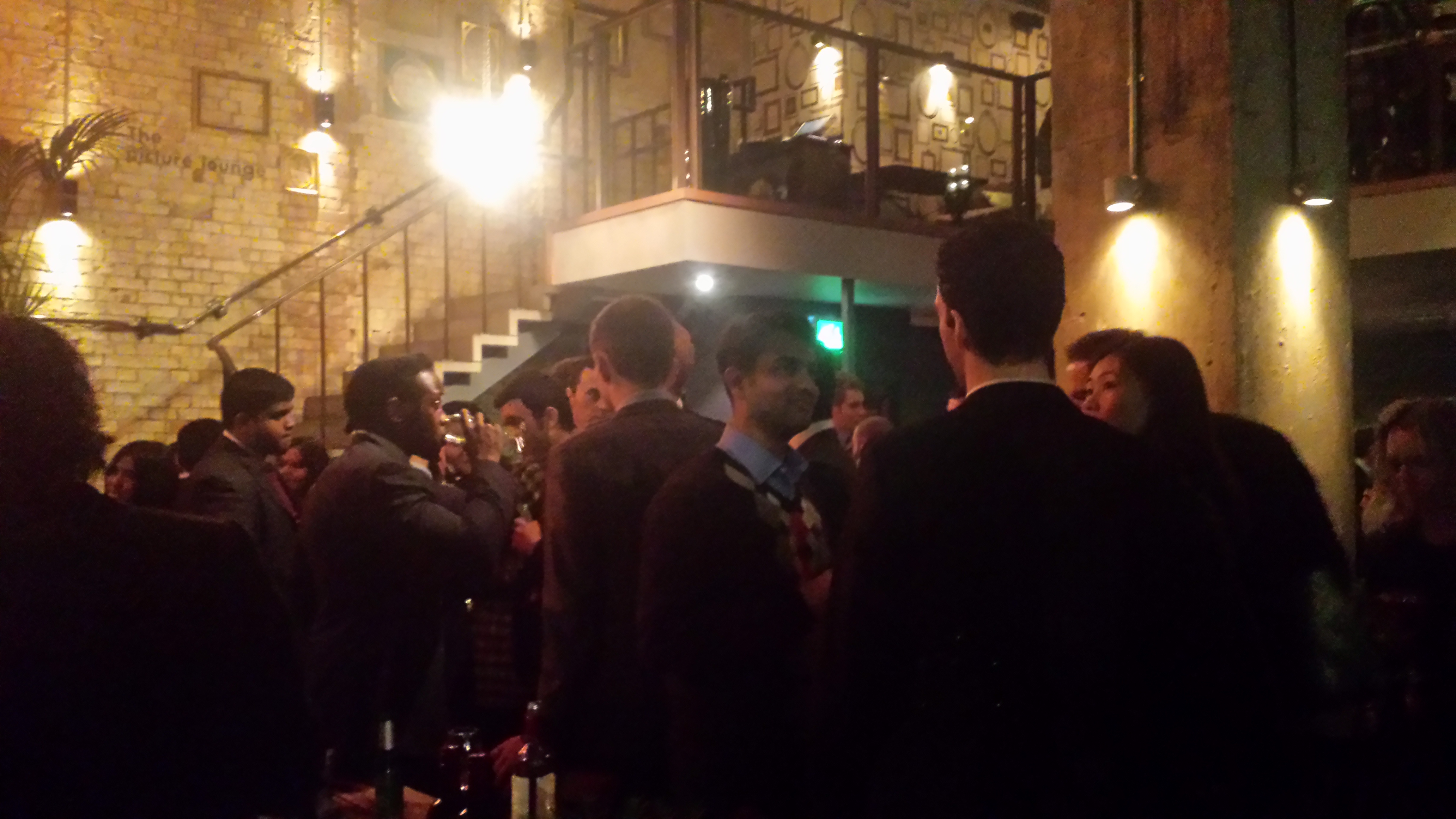
January 28, 2014, by NUBS Postgraduate Careers
Consulting – using your watch to tell you the time
By Beth Cooper
Consulting can mean many things to different people depending on whom you might be asking. Despite its variety, in its most general sense, it is the provision of external advice to an organisation or individual that is either looking for specialist advice or for insight from a third party. We recently held an event in London for our postgraduate students to meet with Nottingham University Business School alumni working in a variety of different areas of consulting. This included the Big 4 accountancy firms, a strategy house, specialist sector consulting as well as those working on a self-employed basis. Held in a bar in the heart of the City of London, it gave students the opportunity to not just find out more about what the role of consulting involves but also get a feel of the social side of working in the City, including the importance of post-work drinks to help build and deepen relationships. Here are some other key takeaways that were shared on the night.
1. Never tell the client what to do
Consulting is not about telling but is about working with a client to find the best solution to meet their needs. They are letting you into their space so it is important that you are able to build up trust, empathy and understanding to help their business perform better. It is all about relationships.
2. You must love talking to strangers
Each new project you’ll be working in a different team, with a new group of people both within your company but also on the client site. They will have a variety of types and years of experience, backgrounds and interests. You need to be comfortable getting off the ground quickly to make sure that you are able to build, and be part of, an effective team. The social element is also a key part of the role, which will include drinks and dining at the end of the working day. As a new member of the team, it might even be your responsibility to organise such events. If you are looking for someone else to show you the way, are not naturally sociable or don’t enjoy speaking with people you’ve never met before, consulting is probably not the right career for you.
3. You are not a technical expert
Much of the role of consultant is a translator and facilitator. Your client will talk with you and you will be able to observe what change is needed whether from a technological, organisational, strategic or financial perspective to meet what the client wants. There will be teams of people with the technical knowledge behind the scenes who you will work with the make sure the solution is appropriate. Your role is being able to translate the client needs into the language that the technical people understand and vice versa. The client won’t want to hear what programs you are using or how to code, they just want you to make their life easier. If it is the technical, number crunching side of things that interests you, again consulting is not the right arena.
4. You will be an industry expert
How does that differ from technical expertise? You need to be up to speed on the market environment in which both your consultancy and your client are working. Solutions cannot be implemented in isolation from this. Who are their competitors? What are they doing? What are the industry trends? You will need to live and breathe their environment so you need to be able to talk their language and show real understanding. Despite the long hours, you must want to keep track of the news, scan through the FT, talk to people to make sure you are up to speed and help develop your credibility. You will need to show you can have meaningful conversations with those at the highest level of the organisation.
5. Time matters
Deadlines are sacred and quality delivery is key. This often means that you have to get up and running quickly, using those around you to fill any gaps in your knowledge you might have. That means that even if you have plans in your private life, you will have to cancel them at short notice to ensure your projects stay on track. Even Friday evening drinks can be a challenge. We saw this directly with two alumni who had to cancel at short notice because they could not get away from work. If you have not built relationships with the people you work with, you could experience a very lonely time as your life outside of work falls by the wayside.
It is not an easy lifestyle to choose nor a straightforward recruitment process to follow. However, if you demonstrate the right aptitude and skills for the profession and are willing to put in the long hours, the rewards will be there. If you would like more help and guidance, please do email businesspcs@nottingham.ac.uk to make an individual appointment.
No comments yet, fill out a comment to be the first

Leave a Reply